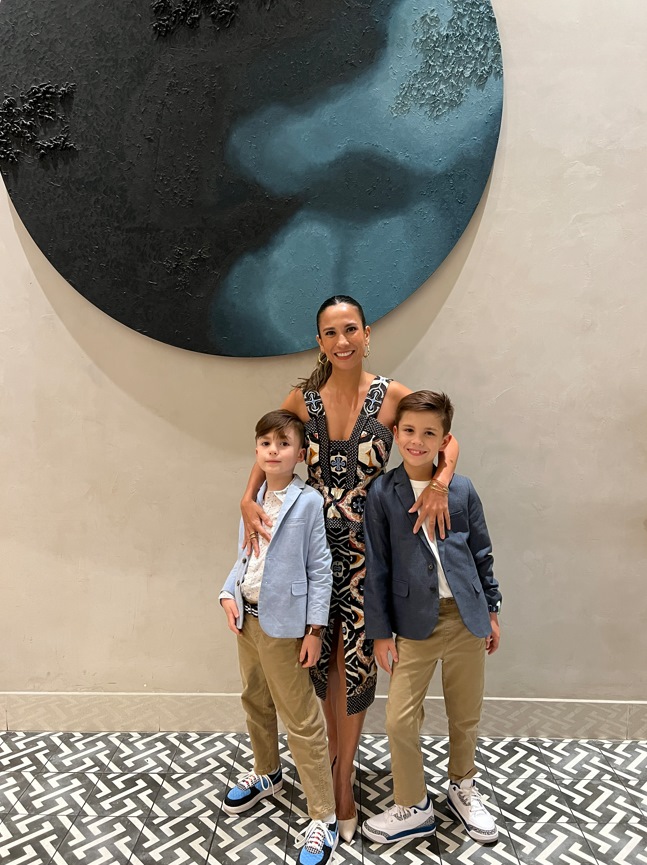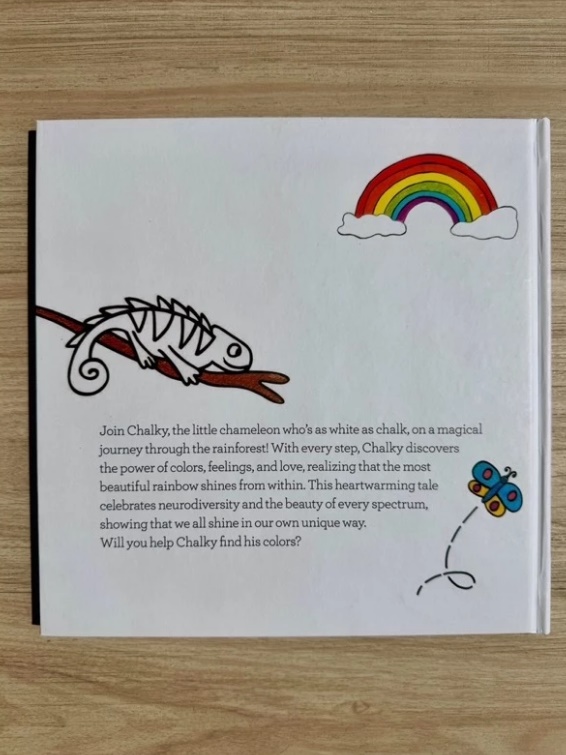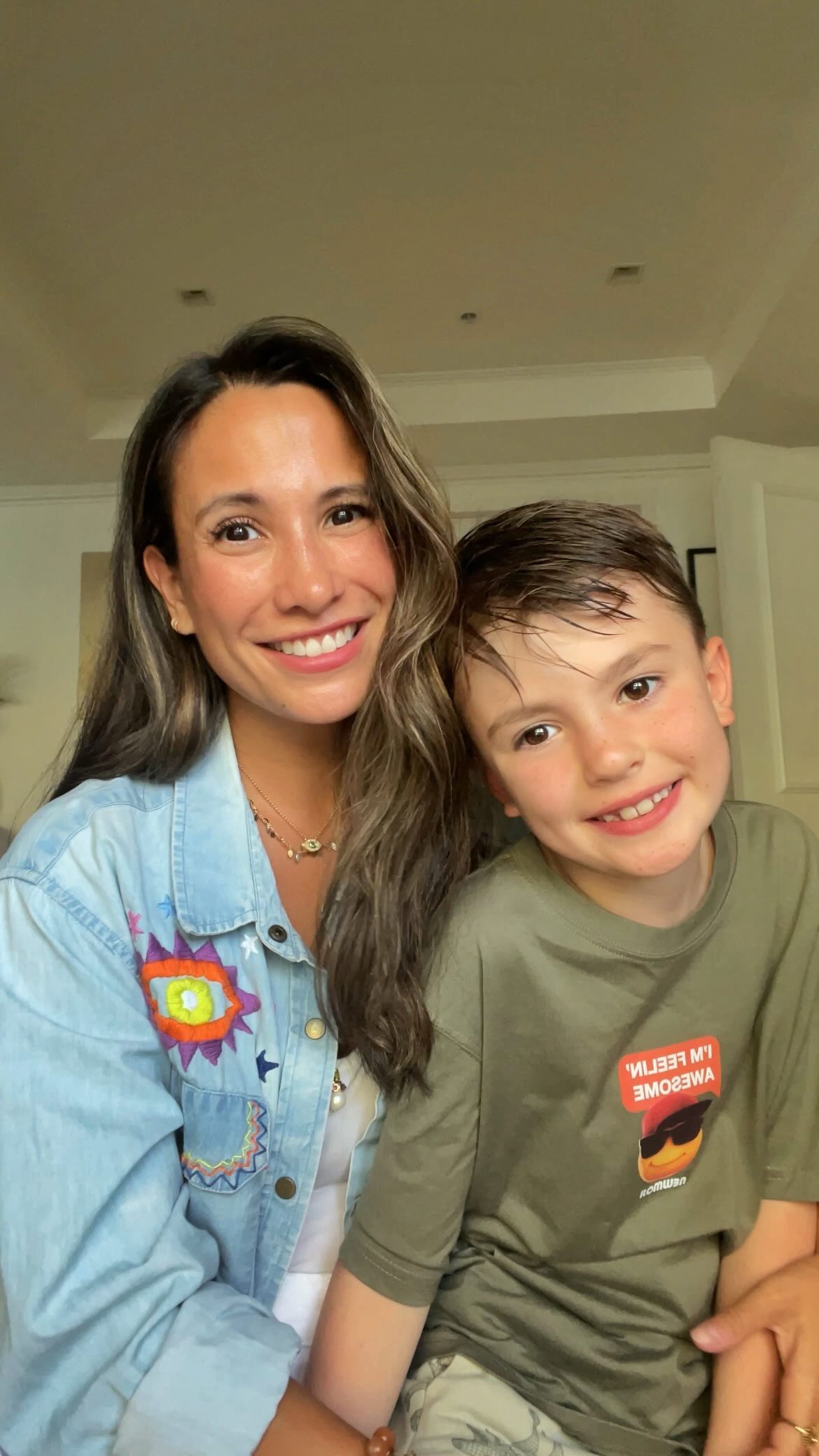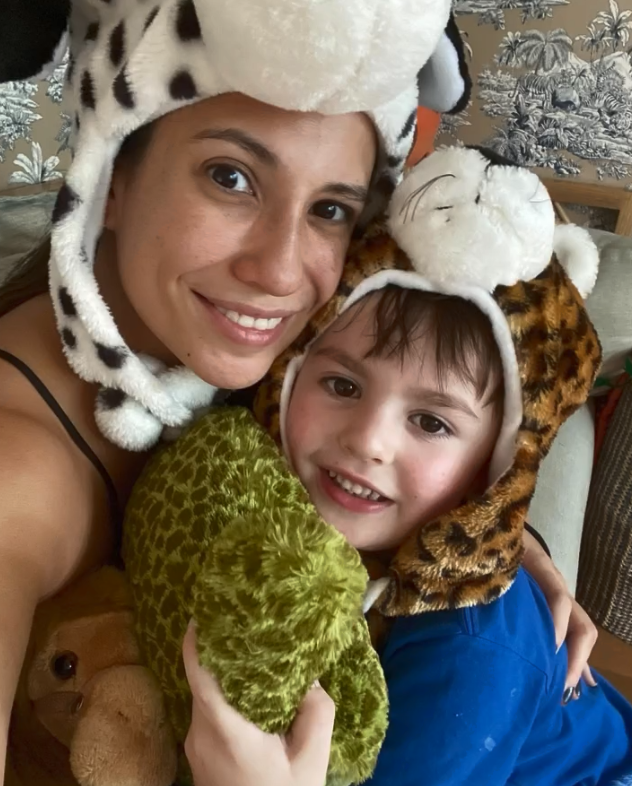How 'Chalky the Chameleon' helped Stephanie Zubiri understand neurodiversity through her son’s eyes
In a world where every child deserves to see themselves reflected in the stories they read, Stephanie Zubiri, an experienced editor and journalist, took on the mission to create a series of books inspired by her children, especially her eight-year-old son, Max, who has an Autism Spectrum Disorder (ASD).
Zubiri's book-writing journey began with her firsthand experiences as a mother of a child on the spectrum. Her first self-published book, Chalky the Chameleon, is one in a series of four children's books that celebrate ASD.
"I think in the Philippines, there’s still a lot of stigma about autism, about neurodiversity, about ADHD. I, from experience, have encountered parents who are still sadly in denial and don’t get their children the help they need. The early intervention is really crucial because the brain is still forming until the age of seven," Zubiri said in an interview with PhilSTAR L!fe.
She added, "[Chalky the Chameleon] was inspired by my son, Max—actually both, to be honest, Max and Seb. Max is eight, [and] Seb is 10. Max is on the autism spectrum. What I love about my two children is that they are so different, like they experience the world so differently and they are both equally beautiful."

Inspired by Max’s interests and daily experiences, she realized the importance of representation in literature—especially for those who might feel isolated or different as well as to advocate for early detection and early intervention of ASD.
About Chalky the Chameleon
Zubiri set out to write a series of stories that celebrated the strengths and quirks of children with autism. For instance, the book Chalky the Chameleon is about a little chameleon named Chalky who has no color and can't change because the world is overwhelming for him.
Chalky always stays on the same branch, on his favorite tree with his mom, and just watches the world and other chameleons. He wonders why he’s different and why he isn't like the others.

"His mother encourages him to go on a journey of discovery and he basically goes, travels, and discovers the reason why he can’t change colors like other chameleons is because he feels and experiences the world differently from everybody else. So he has to feel, taste, and smell the colors and the emotions," Zubiri narrated to L!fe.

For her writing process, Zubiri engaged with other parents, educators, and therapists, gathering insights and anecdotes that enriched her stories. She wanted to ensure that her portrayal of autism was authentic and multifaceted, steering clear of stereotypes.
One of them is Vico Cham, a talented and multi-awarded artist on the autism spectrum who illustrated the book.
"Chalky and I have something in common. We are both unique and differently-abled. This story reminded me to believe in myself and prove to the world that Chalky and I can achieve our dreams!" Cham said in a statement.
Added Cham: “There are three things I would like to share about Chalky‘s journey: His mom is very loving and supportive; Chalky is very brave and never gave up on his dream; The part I loved most was when Chalky saw the rainbow. It gave him hope to achieve his dream, so he changed into rainbow colors because he believed in himself.”

Design For Tomorrow, headed by CEO and chief creative strategist Ric Gindap, generously designed the book—pro bono—while GA Printing produced the physical copies.
As the book aims to spread awareness and knowledge, Zubiri added some information about ASD and neurodiversity inside the book written by Max's developmental pediatrician, Dr. John Harold Sia. This includes some tips on how to recognize ASD and how to respond to the condition.

The rewarding part
The book's collaborative spirit fostered a sense of community as Zubiri shared her own stories and experiences, helping to shape narratives that resonated with many.
"When my kids first saw the book, talagang umiyak ako and then we read it together, they read it with me," she said.
Before the book was launched, she did a story reading at her boys' school where many students came to listen. "My boys were so proud."
Moreover, the response to the book made Zubiri more excited to talk about neurodiversity through her writings, especially for people on the spectrum who found comfort in the characters and realized they were not alone in their struggles.
She shared an instance when a lady in her 50s came up to her and said she recognized herself in Chalky and said she was really grateful for the book.
"That is so meaningful to me because I say it’s not just for kids; it’s for grown-ups and anyone who feels like they still have to unlock the rainbow inside them."
'Your child is valuable'
It was in 2020 when Zubiri found out that her youngest son, Max, had autism. Upon this news, her mind was racing with a million thoughts about how his life would be like and if he would be able to live "normally." It all happened during the height of the lockdowns and after she recently separated from her husband.
After an emotional night, she said she didn't want to shed a tear about the situation but instead fight for her son and give him whatever he needed.

Max has improved his socio-emotional skills, thanks to his therapy, according to Zubiri.
"Max is super high-functioning. He’s super chatty. I think the biggest shift in Max, thanks to his therapy, is his socio-emotional skills. He has so many friends now. He really loves to connect with people," she said.
Remember that your child is really valuable on this planet. They have magic and talent inside that’s just waiting to be unlocked to shine.
With all of these, Zubiri's approach was not just about writing; it was about creating a dialogue.
"My advice to parents is there is hope, and your child is valuable. There are tools and strategies and ways to really empower your child out there, so don’t be shy to go and research," she noted.
There are 500 limited-edition hardbound copies of Chalky the Chameleon which are being sold at P1000 via Shopee. Proceeds of the hardbound edition will go to non-profit organizations Project Inclusion and Best Buddies Philippines. Similarly, it will cover the printing of the softbound copies, which will be sold at P200 per book.
As a dedicated storyteller, Zubiri has more titles underway via Soulful Feasts. The second installation, The Very Clumsy Octopus, about an octopus who has a wonky tentacle is set for release next year; The Artsy Fartsy Spider is about a spider who has ADHD; and The Bird Who Can't Sing puts a spotlight on those who are hard of hearing.
Zubiri is also working on a cookbook for next year and a collection of essays.


